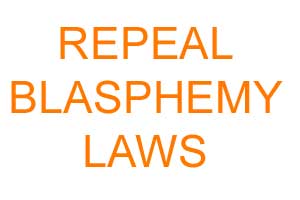Ahmadiyya Times | News Staff | Int'l Desk
Source & Credit: The Jakarta Post | March 11, 2010
By Arghea Desafti Hapsari | Jakarta
Academics took to the stand Wednesday in the judicial review of the blasphemy law, as hard-line Islamic groups warned of a violent backlash should the law be revoked.
The two expert witnesses testifying at the Constitutional Court on the day both concurred that several contentious articles in the law needed to be revised.
Prominent Muslim scholar Azyumardi Azra, a professor of history and director at Syarif Hidayatullah State Islamic University’s postgraduate school in Jakarta, said he believed the state should never interfere in theological or doctrinal matters.
“These are the domain and responsibility of religious authorities appointed by followers of the given religions,” he said.
“There is no guarantee, though, that every follower will agree to everything [a religious authority figure says].”
Azra added a law was still needed to regulate blasphemy, but recommended the existing one be revised to provide a clearer definition of what constituted blasphemy.
“We need to define [blasphemy] in a more detailed and distinct way, such that we don’t get vastly different interpretations of blasphemy,” he said.
The other witness, sociology expert Tamrin Amal Tomagola, said he believed regulating blasphemous acts under the Criminal Code was a “contempt against one’s dignity”.
“There’s no need for a special law for blasphemy, but if some people insist on keeping such a law, then certain items in it must be revised,” he said.
He agreed with Azra that revising the definition of what constituted blasphemy was vital.
Taking the stand after Azra and Tamrin, Mahendradatta from the hard-line group Hizbut Tahrir Indonesia (HTI) said the petitioners seeking a judicial review of the law were inconsistent in distinguishing private matters from public.
“They say casual sex and pornography are private matters that the state should never interfere in,” he said.
“But they also say unregistered marriages are public matters in which the state should interfere.”
Mahendradatta added the state needed to intervene in some private matters deemed dangerous, including drug use.
“Blasphemy is far more dangerous than narcotics, so it’s only proper that the state take action against those who deviate,” he said.
He called on the court to retain the law and increase the severity of punishment for violators.
Habib Rizieq, from the hard-line Islam Defenders Front (FPI), warned of “fatal consequences” should the law be revoked, during his testimony.
“In the future, if anyone insults a religion, Islam for example, and there is no official legal process in place, Muslims will use their own ways, by killing the heretics,” he said.
The FPI is notorious for several attacks against members of the Ahmadiyah sect.
HTI and FPI members hold rallies outside the Constitutional Court every Wednesday, when it convenes to hear the judicial review.
Commuters driving past the court faced worse traffic congestion than usual Wednesday because of the larger crowds lending support to their representatives testifying inside.
The request for a judicial review of the blasphemy law was filed by several NGOs and self-proclaimed promoters of pluralism, who claim the law discriminates against certain religious groups, particularly minorities that have been denied the fundamental right to worship.
The contentious articles in the law involve the government’s authority to dissolve religious groups whose beliefs and practices are deemed blasphemous by religious authorities such as the Indonesian Ulema Council (MUI) and the Religious Affairs Ministry.
Read original article here: Repealing blasphemy law ‘will have fatal effect’












No comments:
Post a Comment
Thank you for your comments. Any comments irrelevant to the post's subject matter, containing abuses, and/or vulgar language will not be approved.